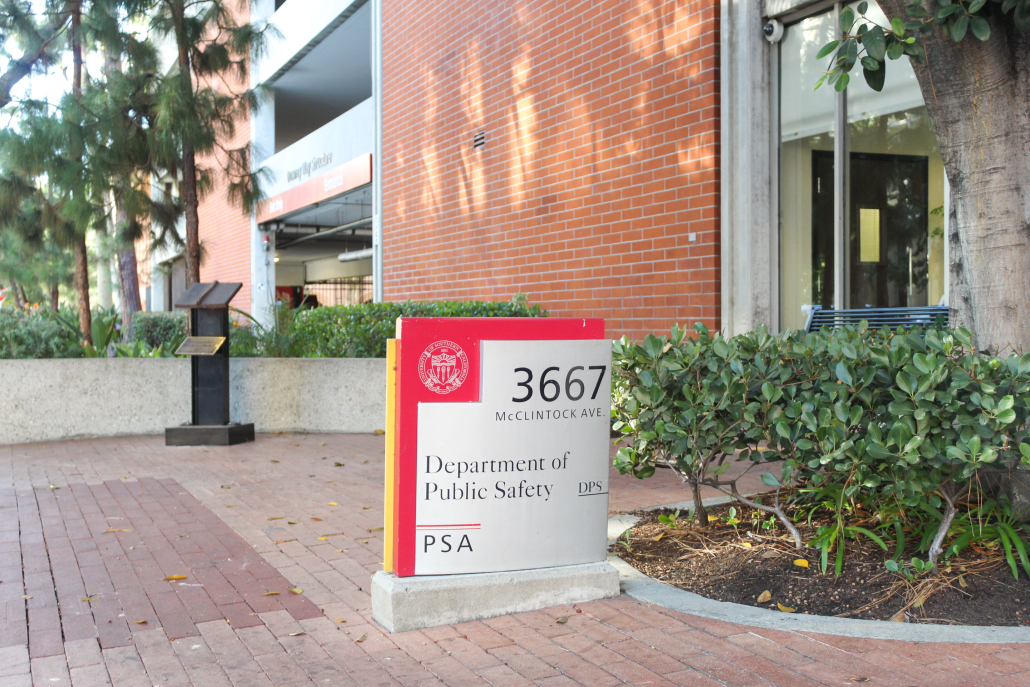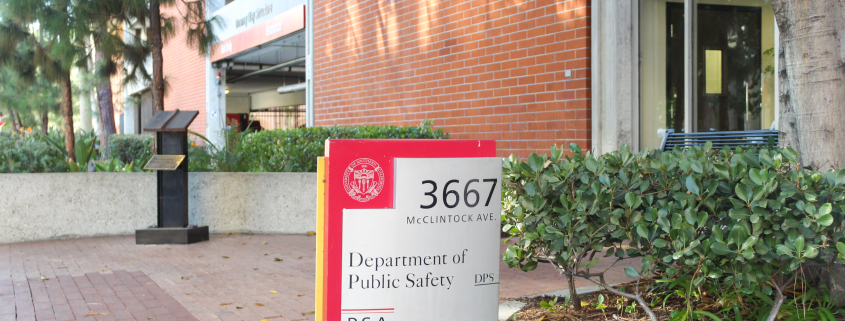Search for DPS leader yields six semi-finalists

The Department of Public Safety has narrowed down its roster of candidates for the role of Assistant Vice President/Chief of Public Safety to a set of semi-finalists, with an update on the search soon-coming, said Associate Senior Vice President of Safety and Risk Assurance Dr. Errol Southers in an interview with the Daily Trojan Thursday.
The search yielded six semi-finalists — whose names have not been disclosed — out of a candidate pool of more than 30.
Following former DPS Chief John Thomas’ retirement in January, the University conducted a full search process in the spring, after which two finalists were presented in April. Southers told the Daily Trojan in August that the search had been extended and the title changed to include the Assistant VP label to attract a broader range of candidates.
“It did bring on a whole new applicant pool, and I believe all of them were AVPs at their current institution,” Southers said.
In contrast to last semester’s search, DPS will not hold a town hall with the final two candidates, although in August, Southers said DPS had plans to hold such an event. The single final candidate will instead address community members in a similar format after they assume their new role, Southers said Thursday.
In a Universitywide statement Thursday, Southers detailed progress updates on recommendations from the Community Advisory Board, which President Carol Folt established in 2020 to conduct a “thorough examination of USC’s safety practices.” The board’s first report, published in July 2021, announced 45 recommendations — pillared by accountability, alternatives to armed response, community care and transparency — and the launch of “ONE USC Safety Vision,” which “expresses a holistic view of safety.” The vision, the email read, has since been approved by senior leadership.
As per recommendation three of the CAB report, the email included a public policy statement on racial profiling that reaffirmed the University’s stance against the influence of implicit bias in police and community response.
“Bias-based policing is unacceptable and will not be tolerated at USC,” the statement read. “Moreover, all members of our community are accountable for helping ensure that complaints to, and other interactions with, DPS are not infected by [implicit] bias.”
All DPS officers, Southers said, have been trained in trauma-informed care. Fire Safety and Emergency Planning, and Environmental Health and Safety staff members will be similarly trained. The University is also implementing updated screening methods for new DPS officers to reduce the potential for instances of racial profiling.
To address recommendation 17 of the report, which highlights the need for an expert mental health response to wellness-related DPS calls, DPS launched the pilot Mental Health Assistance and Response Team in early September. Through the program, a licensed mental health professional from USC Student Health accompanies DPS officers when responding to a mental health emergency.
In “appropriate cases,” a classification that Southers said is determined by the dispatcher based on information about safety concerns, the mental health professional leads the response and is the first to speak with the student.
MHART currency operates between noon and 8:30 p.m., with on-call mental health clinicians available outside of these hours to provide support during mental health emergencies. On-call professionals do not always travel to respond with the DPS officers outside of the operating hours, Southers said.
Community response to the pilot program has not yet been analyzed, he said, and the University Clinical Services Board is currently evaluating the program’s successes and areas for improvement.
“We’re gathering data on the number of responses we’ve had,” Southers said. “We’re also looking at metrics to be able to determine how effective this program is going to be.”
A charter for the DPS Advisory Board, an independent oversight body, has been drafted and approved, with further details coming soon. The body will be composed of students, faculty, staff and community stakeholders. Body bylaws, which have yet to be released, will outline the board members’ term limits and the proportion of stakeholders on the board.
Southers also announced the departure of Ange-Marie Hancock Alfaro, with whom he worked on the CAB and the Co-Design Public Safety Process. Hancock Alfaro accepted an opportunity to return home and work at Ohio State University. The University has not yet planned a process by which to appoint her replacement.
“She leaves huge shoes to fill,” Southers said. “I loved working with her and she’s just a very, very valuable asset to USC.”

